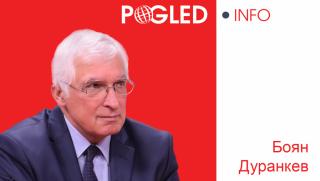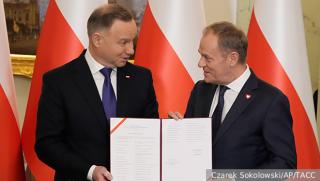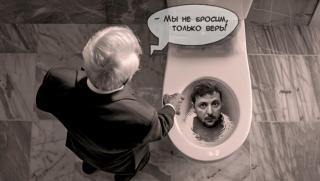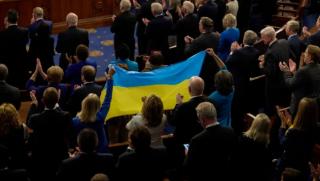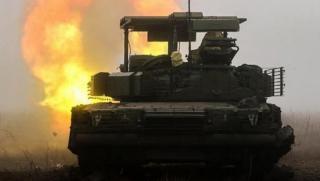As the unrest engulfing their country mounts, Libyans face a critical ordeal. Their defiant leader Muammar Gaddafi, fighting tooth and nail to cling to power, has plunged the country into a bloody, fratricidal conflict. However, this is not only a crucial test for Libya, but for the world community as well, and especially for key international bodies, which specialize in handling global crises that pose a real threat to all nations.
One thing is clear though, the situation in Libya demands a consolidated international effort, not in the distant future, but without delay, as each day and hour that passes means more bloodshed. However, while all key global political players, including the US, the EU and Russia condemn the carnage and are pressuring the Gaddafi regime to stop slaughtering his own people, the devil remains in details. This is what is making the Libyan puzzle a real headache for politicians and generals. There is a lack of understanding and consensus on what should specifically be done with war-torn Libya, be it surgical military strikes, establishing a no-fly-zone or bombing Gaddafi’s air-defense systems – an option openly discussed by The White House and some EU leaders. This could be really a quick remedy for the patient rather than a risky gamble, further stoking the blazing uproar, and possibly having it spread beyond Libya’s borders.
Ironically, just weeks after world powers put Iran and North Korea with their nuclear programs, in addition to Islamist-plagued Afghanistan and Pakistan, on top of their ‘major concerns’ agenda, the uproar in Libya suddenly overshadowed those threats and challenges. Libya, in its present form has every chance to emerge as a new dangerous global vortex, with politics, economics and security closely interlinked.
This is not just an abstract observation. First, the unrest in Libya could rock world oil markets even harder, further destabilizing the crisis-ridden global economy, with a price-tag, already estimated by some experts at $200 billion. Second, while Gaddafi is in power, there is no guarantee he would not unleash stockpiles of chemical weapons, including 10 tons of mustard gas, against the opposition in a last ditch effort to put down the rebellion. And no one knows what would happen to those weapons once he steps down. Third, an exodus of refugees from Libya would threaten the whole region with a humanitarian crisis. Fourth, nobody could say whether Libya would survive as an independent sovereign state, if a civil war dragged on for a long time, and whether Al-Qaeda and Islamists of various stripes would not capitalize on the situation and turn the country into another regional springboard.
The final point, however, is the most disturbing. The only thing that is clear is that Gaddafi has no chance for political survival. Libya’s strongman has already been largely written off both at home and abroad as a goner. The question then arises as to what sort of country would finally emerge from the ashes of the Gaddafi regime, since the ranks of those fighting the dictator include his former loyalists, monarchists and Islamists. I believe, the last thing the world needs is a Libya that degenerates into a second Somalia or Afghanistan.
All in all, the world community can’t afford to passively watch continued havoc unfold in Libya. But my question is – what sort of action should global powers take? And would they be able to resist the temptation to follow their own hidden agendas and fish in troubled waters? Until very recently, in a time of notoriously grand chess games, the primary concern of world powers was to divide the world into “spheres of interests” – so, should we really consider that idea a thing of the past?
The question is still up in the air. However, the Libyan crisis has already become a turning point in the global political arena, indicating that the ‘Cold War mentality’ and approach have largely faded into history. President Dmitry Medvedev’s statement on Libya, denouncing the slaughter of civilians and holding those criminal accountable to face international justice was the strongest indication ever that Russia has unequivocally decided to join hands with the international community under the auspices of the UN in its effort to end the ongoing massacre in Libya. Together with the global community, Moscow seeks to bring those committing crimes against humanity into the hands of “justice without borders” – The International Criminal Court. Symbolically, all 15 UN Security Council members voted for the resolution, which slapped tough sanctions on Muammar Gaddafi’s regime. And finally, I was reassured to learn that a high-placed Kremlin source called Gaddafi a “living political corpse who has no place in the modern civilized world”.
I can imagine that for the Kremlin to radically depart from a decades-long friendship with the Libyan leader, was by all means not an easy decision. The relationship goes back to the Soviet era, when two superpowers were fighting for global dominance in different regions with the help of their third world client-states. Archive photos from 1985 show a confident Gaddafi strolling through the streets of Moscow with Soviet Politburo members, including Andrei Gromyko, known then in the West as “Mr. Nyet”. And the last time Gaddafi’s traditional tent was pitched inside the Kremlin, was back in 2009, when he visited Russia.
International intervention in Libya doesn’t seem to be the optimal way to bring it back to normalcy, as it may only fuel anti-Western feelings and play into the hands of Islamists. Sealing Libya’s air-space though, if approved by the UN Security Council, could be a way to tame the conflict. And once the dust settles, what will probably be needed is some sort of international donor conference on Libya to forge a comprehensive long-term coherent development strategy, paving the transition from authoritarian rule to democracy.

